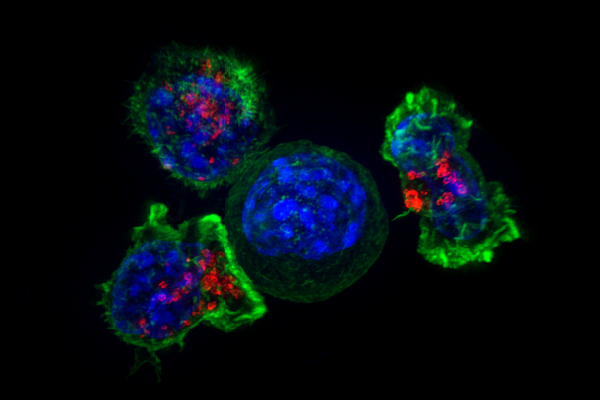New association found between gene mutations and cancer metastasis

Researchers at Uppsala University have identified gene mutations that are associated with the spread of metastases in colorectal cancer. The findings that have recently been published in the journal Cancer Research could be used to identify patients that would benefit most from further therapy, after having surgery, and that require close monitoring to detect disease recurrence.
Colorectal cancer is one of the most common cancer types and in Sweden approximately 6000 people every year receive the diagnosis. The primary tumour can most often be surgically removed, which cures many patients, but as for many types of cancer, the spreading of metastases can be a severe problem.
However, not all patients have the same risk of developing metastases and in the present study the researchers have identified mutations that are associated with metastatic disease. They analysed tumour samples from patients with and without metastases and discovered a group of genes that were mutated predominantly in metastatic patients. These mutations might be clinically relevant for predicting the development of metastases.
"It is very important to be able to identify patients that have an increased or reduced risk of developing metastases. Then an unnecessary therapy, with severe side effects, can be avoided for patients with a lower risk and patients with a higher risk of metastasis can receive adjuvant therapies that can improve their chances to survive," says Lucy Mathot, researcher the Department of Immunology, Genetics and Pathology and first author of the paper.
The normal function of the mutated genes is to give rise to proteins called ephrin receptors. In healthy cells these proteins are involved in controlling the position of different cell types in the intestine but when the genes encoding the receptors are mutated, as in the patients in the study, the proteins lose their normal function, which can enhance the metastatic capacity of cells.
"Ephrin receptors have since previously been linked to the development of cancer and metastasis. Our results can now help to explain the mechanisms behind this link, i.e. how the receptors are involved in the increased spread of cancer cells," says Lucy Mathot.
More information: Lucy Mathot et al. Somatic ephrin receptor mutations are associated with metastasis in primary colorectal cancer, Cancer Research (2017). DOI: 10.1158/0008-5472.CAN-16-1921

















